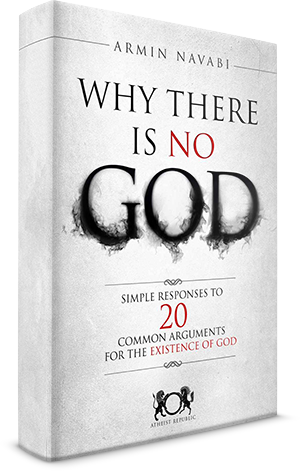
New Testament Illusion
During a delusional period of my life laboring as a Christian minister, I was fond of preaching about the “amazing” grace of God revealed in the New Testament, contrasting it against the backdrop of the unforgiving law of the Old Testament. The Old Testament was nothing more than a hard task master that had led us to the love of Christ. On my journey out of extreme religious fundamentalism, it was not surprising that one of the first stages I reached was waking up to the absurdity of the Old Testament. One would have to be delusional to believe the god portrayed in those books was in any way loving, good or even rational.
However, the true absurdity of the New Testament was a harder nut to crack. For cafeteria Christians who cherry-pick their way through the Bible, much of the “good stuff” is found either in the Old Testament books of Psalms and Proverbs or in the twenty-seven books of the New Testament. There is a stubborn illusion of an abundance of “good stuff” to choose from in the New Testament. Even many agnostic Christians hold tightly to the supposed moral values taught in these books, clinging tenaciously to this last bastion of hope against a bleak world of moral relativism.
The New Testament presents a challenge, as much of it is written as personal correspondence to individuals and local churches of the time period. They include typical greetings and acknowledgments along with some specific instructions meaningful only to the individuals being addressed. Trying to pick up where a relevant train of thought begins and ends is difficult at best and so most Christians tend to read it in a disjointed fashion, if they read it at all. Casual readers mentally break up the text into sections that make sense to them and scan over the rest, basically disregarding the context and logical thought flow intended by the author.
If we wish to really see the New Testament in its full absurd glory, we first have to respect the author’s linear progression of thought and any attempted use of deductive reasoning, permitting them to fully develop their arguments. The original authors did not write in short proverbial phrases as is commonly quoted in churches today, but instead they were written as cohesive semantic units with each point building on the strength of its predecessor.
Even as nonbelievers, we play into the mental defenses of believers if we disregard context in our criticism and lazily offer up simple challenges about perceived contradictions and injustices. We unintentionally provide those we are trying to help with ample apologetic wiggle room. Instead, if we stay true to the original context, we can more effectively challenge core illusions about the Bible shutting off their mental escape routes. A great example of this is an argument laid out by Paul in Romans 1:18-32.
Paul’s Syllogistic Reasoning
Paul begins this particular discourse with the claim that God is now showing us that he is very angry with certain individuals. So, what’s new? In an ironic twist, Paul is going to demonstrate that in this instance humanity’s bad behaviour is not the source of God’s anger. Instead, it is God’s anger that is the source of humanity’s bad behavior. Whoa, what? Now, this should be interesting. (vs18)
Paul begins to lay out his case by asserting the crime committed was the denial of an introduction to the one true god of the Old Testament - YHWH. More specifically, they denied “God's invisible qualities--his eternal power and divine nature--have been clearly seen, being understood from what has been made.” (vs19-20)
Now Paul was not claiming that everyone has an innate knowledge of God’s existence, as some presuppositionalists ignorantly believe, but simply that we can clearly see God and what he is like in nature; a classic argument from design. However by including God’s invisible qualities, and considering the proliferation of polytheistic religions in the 1st century that Paul is addressing (vs23,25), Paul is actually arguing for something far more logically indefensible: namely that a specific god, YHWH of the Hebrew Old Testament, is clearly revealed by nature. This non-sequitur move from the visible world to a god’s existence to YHWH’s specific existence reminds me of a William Lane Craig fallacious leap from a “possible first cause” to “Jesus is God” to “we need to be saved”.
Paul then states, by denying YHWH’s existence these individuals, let’s call them YHWH-deniers, were rendered incapable of appreciating YHWH. Due to this new ungrateful state of mind, the YHWH-deniers’ epistemology became dysfunctional, useless and thus they became simple minded fools. (vs21-22)
Pausing the progression of his argument, Paul drives home the reason YHWH’s anger is justified. These YHWH-deniers had exchanged the plainly obvious knowledge of YHWH’s existence for a lie. They experienced pleasure from the things that they could see, touch, and feel in the real world instead of enjoying the presence of the invisible and silent YHWH. Really? This is worthy of great wrath? (vs25)
Paul then moves on to show what YHWH does when you ignore him -- it pisses him off. In his anger, YHWH took away his kind, fatherly protection from these ungrateful YHWH-deniers and “gave them over” to their natural animal instincts. Apparently YHWH had been holding back the evil natural instincts he had created in them. Without YHWH’s restraining assistance, the women who “belonged” to the men turned into lesbians and the men turned gay! Oh my, this is starting to feel more and more like the familiar misogynistic, homophobic Old Testament. (vs 24,26-28)
After YHWH allowed them to turn homosexual, because that is what all humans naturally want to be if it weren’t for YHWH holding us back, YHWH also “gave them over” to a “depraved mind” and they became pure-evil-greedy-low-life-scum! Desiring their neighbors resources, they murdered each other, fought with each other, deceived each other, and took pleasure in each others suffering. They started gossiping and spreading false rumors, and they even became YHWH haters! Hold up a minute ... YHWH-deniers somehow hate YWHW whom they deny exists? Who are they hating? (vs 29-30)
But wait ... there’s more! After pissing off YHWH they became disrespectful, arrogant, boastful people who when running out of ways to do bad things invented new ways to do bad things! Horror of horrors, they started disobeying their parents! Because children of believers in YHWH don’t disobey their parents? Oh … the offspring of YHWH believers are killed if they disobey ... duh. (Deuteronomy 21:18-21) They became senseless, faithless, heartless, and ruthless people. Hmm… why does this seem to describe some Christians I know? Are they secretly YHWH-deniers? Double agents? (vs30-31)
Paul finally concludes his argument: Even though the YHWH-deniers actually know YHWH, and know according to his good laws people who behave this way should be put to death, they continue to behave like evil beasts anyway and cheer on others who behave the same way. Notice this final non sequitur Paul just slid in here. Now the YHWH-deniers not only know of YHWH’s existence and his divine eternal power, but they also know his good laws and that they are applicable to their behavior. All from just watching a sunset? (vs32)
Fallacious Logic of a Fanatic
Let’s dig into this a little deeper. The common misguided notion that a naturalistic worldview will lead to gross immorality is nothing new. Christian apologists today are fond of saying they can’t see how morality can be grounded in a naturalistic worldview. Is it strange how often they offer their lack of imagination as an argument? But even they are not so arrogant as to say this means all atheists are immoral. Instead, they argue morality is innate in all of us because God placed it there whether we believe in him or not.
Paul is having none of this weak soft-pedaling apologetic that an individual can be moral even while denying YHWH’s existence. For Paul, the evil in this world is a direct result of humanity denying YHWH’s existence and YHWH allowing us to run unfettered with our naturalistic urges. He doesn’t offer the modern apologist wiggle room to play nice and pretend that there is some innate sense of right and wrong guiding the moral atheist.
When we look at the visible world, Paul believes it should clearly introduce us to an invisible creator “without excuse”. (vs20) Even if we grant this premise, it doesn’t follow logically that we can see the work of a lone creator who is eternally powerful. History shows us it was more intuitive to ascribe unknown natural forces to a collaboration of temporal gods who shared power in the creation and maintenance of the observable world. In spite of his last assertion still needing further justification, Paul blazes ahead by adding a meaningless tautology about YHWH’s divinity: By revealing himself as YHWH through nature, YHWH has revealed he does indeed have the nature of YHWH. Sounds like some “woo woo” logic only a new age guru would appreciate.
Is Paul seriously claiming this one specific god whom a small ancient tribe worshipped is “clearly seen”? What statistical magic is he employing to equate a miniscule quantity with “clearly”? If nature clearly revealed a specific god, then why are religious beliefs not convergent? Why do religions spring up from central charismatic figures like Moses, Jesus, and Muhammad and not from within the general population?
Paul’s first premise is the only slightly defensible point of his whole argument and I only grant this for his original audience in light of the scientific ignorance of that age. The rest is just plain absurd in any age. YHWH is so pissed off because people deny his existence that he turned heterosexual humans loose and they just naturally turned into homosexuals? YHWH is once again holding people accountable for the supposed evil they are doing even though he is the one who “gave them over” to their natural desires which he created in the first place (vs24,26)? Why didn’t he just get over his hurt little ego and just make himself … oh ... I don’t know … visible … instead of throwing this Old Testament worthy childish temper tantrum?
A Long Shadow
Finally, in spite of what apologists would have us believe, homosexuals are apparently atheists, or at the very least unbelievers in YHWH, who have been turned over by YHWH’s anger. I am sure this would be news to Christians in the LGBT community. Do they secretly deny the god they publicly profess? All atheists are ignorant, immoral, evil beasts, incapable of restraining our passions without YHWH’s kind assistance. Even here in the pages of the peaceful New Testament, atheists and homosexuals deserve death, because the God of the Old and New Testament just wouldn’t have it any other way. (vs32)
How have so many atheists become leading intellectual thinkers, scientists, engineers, and innovators if they are just simple minded fools embracing a dysfunctional epistemology? (vs 21-22) For any moral atheist or YHWH-denier who also happens to be heterosexual, does this mean they really didn’t need YHWH’s restraint? Or does reality just reveal Paul's argument is nonsensical and serves no purpose other than to give us a window into the mind of a 1st century fanatic? As we respectfully let the author speak for himself and lay out his argument in full, the conclusion is pretty clear. Considering Paul is the leading author of the New Testament and possibly Christianity’s chief architect, I believe his fallacious reasoning must cast a long shadow over the ideology he helped create.
“ … people are destroyed for lack of knowledge” Hosea 4:6
Photo Credits: Wikipedia





























